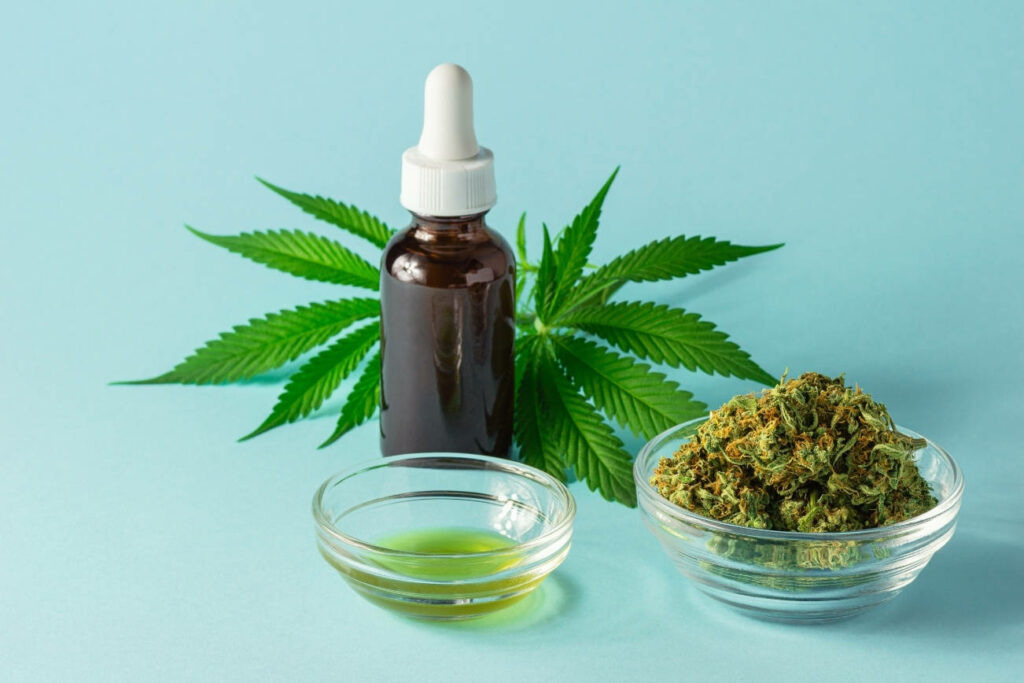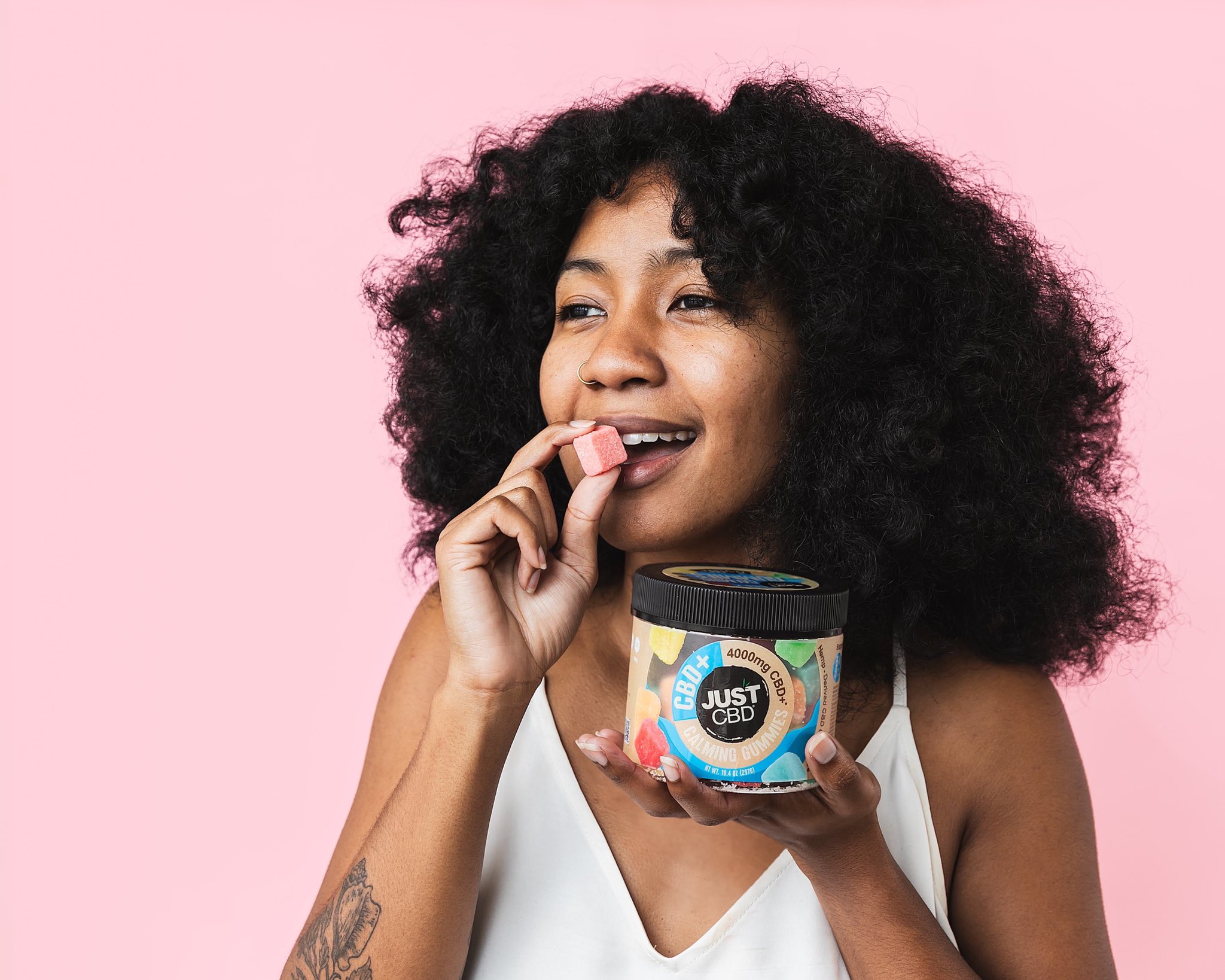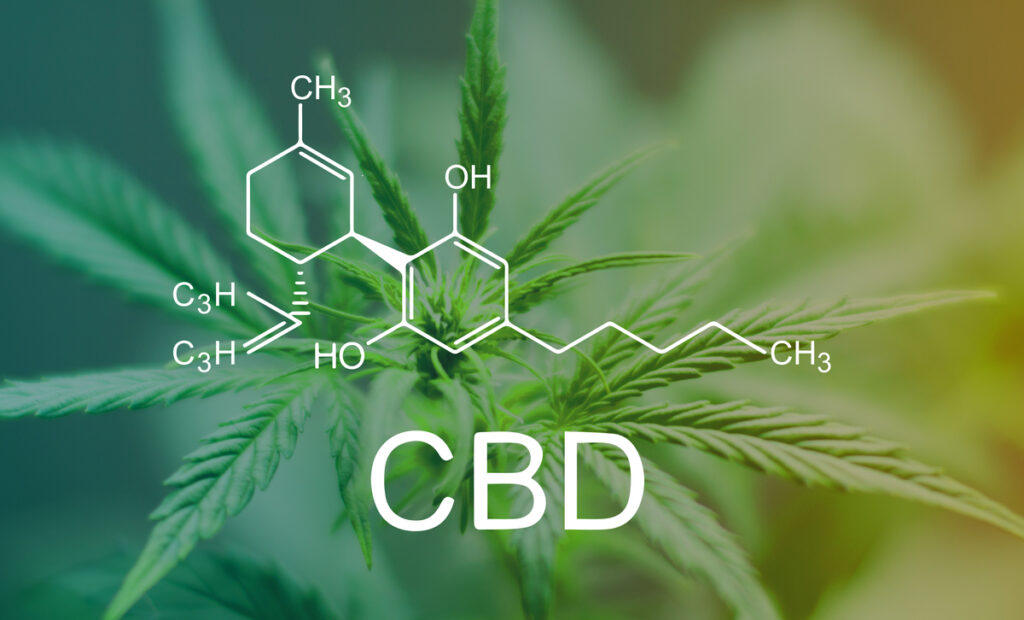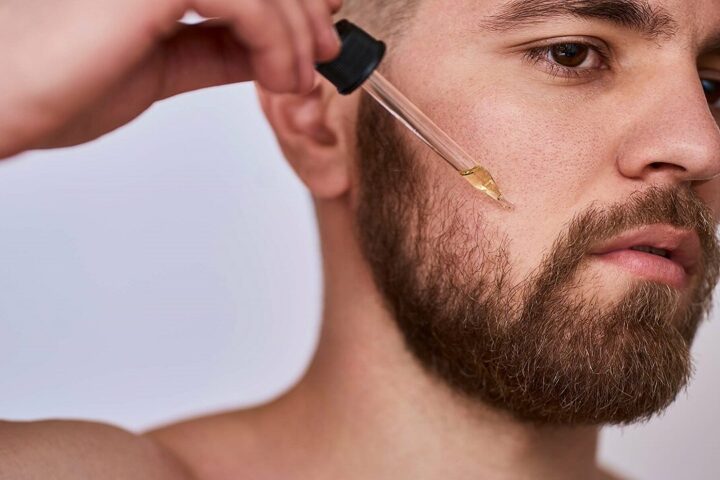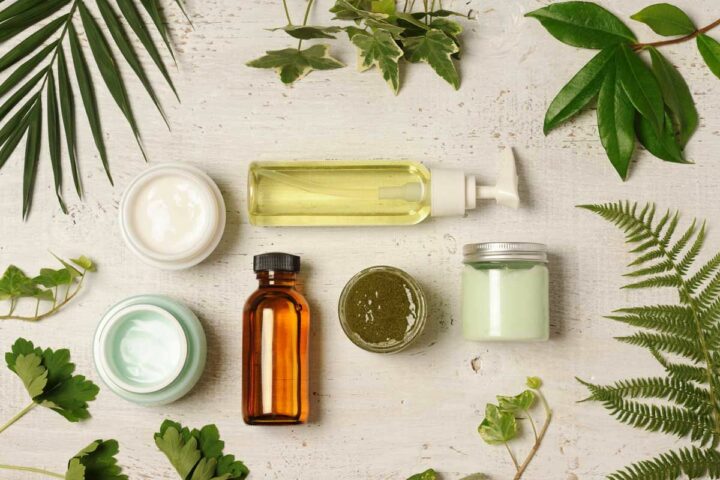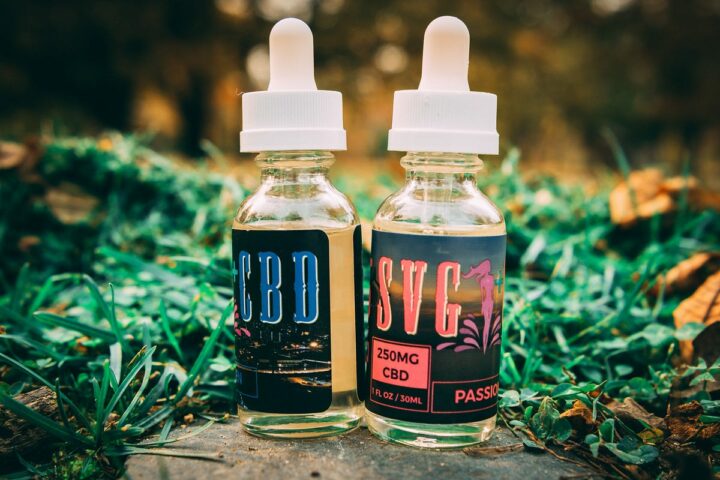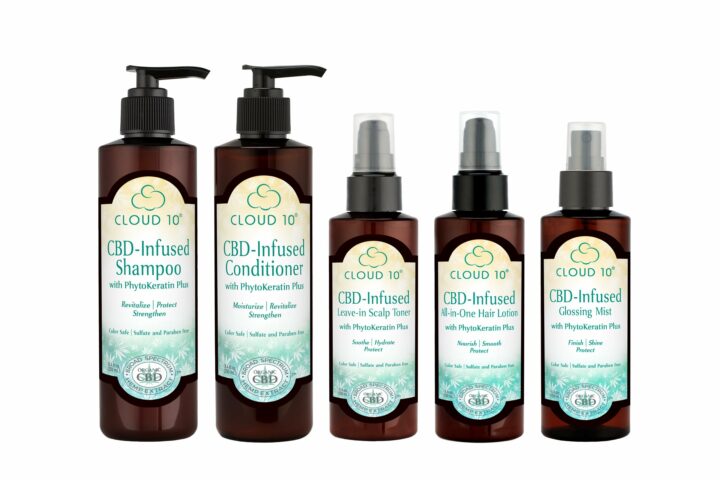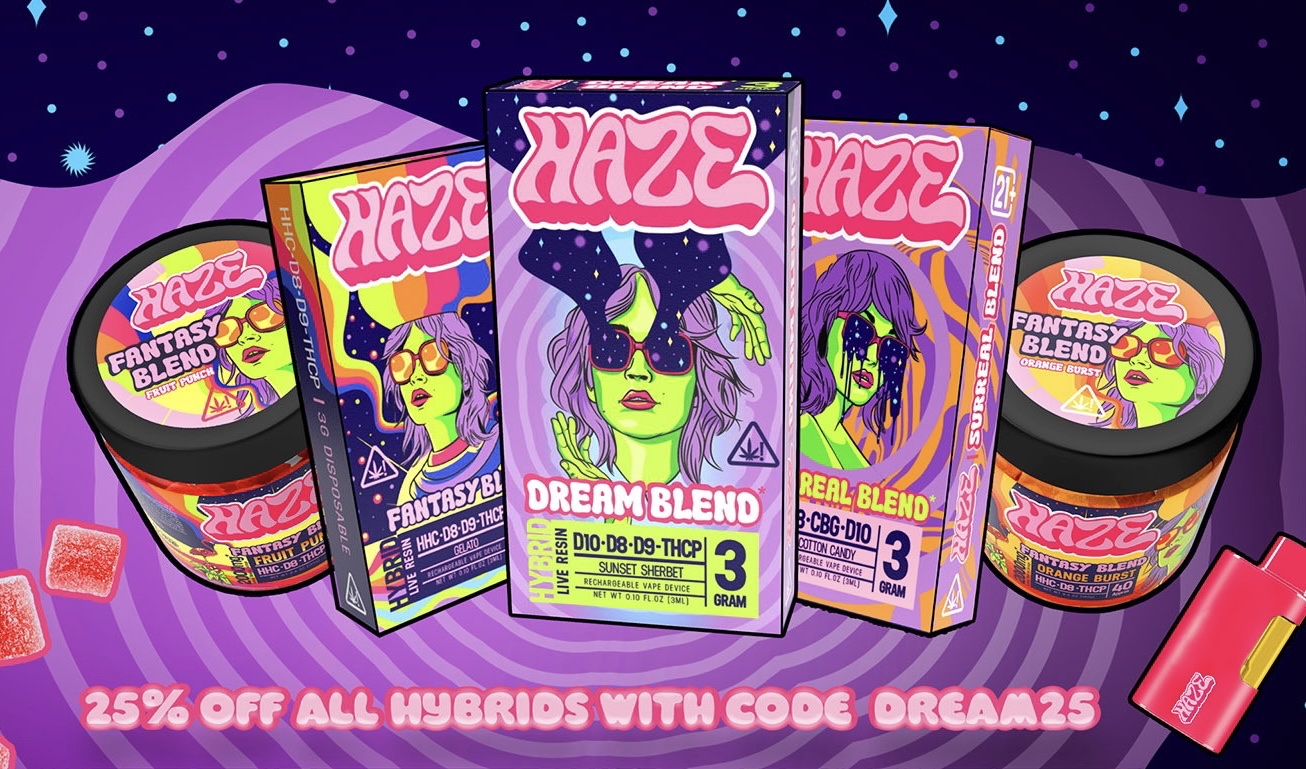CBD Offers
What are CBD Offers
CBD offers refer to promotional discounts, deals, and special offers provided by CBD companies and retailers to their customers. These offers can come in various forms, such as percentage discounts, BOGO (buy one get one) deals, free shipping, and more.
CBD offers can be a great way for consumers to save money on CBD products, which can be quite expensive. They can also be a great way for companies to attract new customers and retain existing ones.
Types of CBD Offers
- Percentage Discounts: These offers provide a percentage off the total purchase price, such as 10% off, 20% off, etc. These discounts can be applied to all products or specific products or categories.
- BOGO Deals: These offers provide a free product with the purchase of another product. For example, buy one CBD oil and get another CBD oil for free.
- Free Shipping: These offers provide free shipping on all or certain products, usually when a minimum purchase amount is reached.
- Limited Time Offers: These offers are only available for a specific period, such as a few days or weeks.
- Loyalty Programs: These offers reward customers for repeat purchases with exclusive discounts and perks.
How to Find CBD Offers
CBD companies and retailers may advertise their offers on their websites or social media pages. They may also send promotional emails to their subscribers. Another way to find CBD offers is by searching for them on deal and coupon websites.
Things to Consider When Using CBD Offers
- Expiration Dates: Make sure to check the expiration dates of the offers to ensure they are still valid.
- Terms and Conditions: Be aware of any restrictions or limitations on the offers, such as minimum purchase amounts or exclusions on certain products.
- Quality of Products: Don’t let the lure of a discount overshadow the quality of the products. Make sure to research the company and read reviews before making a purchase.
Conclusion
CBD offers are promotional discounts and deals provided by CBD companies and retailers to their customers. These offers can come in various forms, such as percentage discounts, BOGO deals, and free shipping. Consumers can find CBD offers on company websites, social media pages, and deal websites. When using CBD offers, it’s important to check expiration dates, terms and conditions, and the quality of the products.
How to use CBD Offers
Using CBD offers can be a great way to save money on CBD products. Here’s a comprehensive guide on how to use CBD offers:
- Find the Offer: The first step is to find a CBD offer that you want to use. You can look for offers on the company’s website, social media pages, or deal websites.
- Read the Terms and Conditions: Before using the offer, make sure to read the terms and conditions. The offer may have restrictions or limitations, such as a minimum purchase amount or exclusions on certain products.
- Add Products to Your Cart: Once you’ve found the offer and read the terms and conditions, add the products you want to purchase to your cart.
- Apply the Discount Code: If the offer requires a discount code, make sure to enter it at checkout. The discount should be applied to your total purchase price.
- Check Out: Once you’ve applied the discount code, proceed to checkout and complete your purchase.
- Enjoy Your Savings: Congratulations, you’ve successfully used a CBD offer and saved money on your purchase!
Tips for Using CBD Offers:
- Check the Expiration Date: Make sure to check the expiration date of the offer to ensure it’s still valid.
- Combine Offers: Some companies allow you to combine offers, such as a percentage discount and free shipping. Make sure to read the terms and conditions to see if this is allowed.
- Don’t Sacrifice Quality: Don’t let the lure of a discount overshadow the quality of the products. Make sure to research the company and read reviews before making a purchase.
- Sign up for Newsletters: Many CBD companies offer exclusive offers and discounts to their subscribers. Consider signing up for their newsletter to stay up-to-date on the latest offers.
Conclusion:
CBD offers are a great way to save money on CBD products. To use a CBD offer, you need to find the offer, read the terms and conditions, add products to your cart, apply the discount code, and check out. Make sure to check the expiration date, combine offers if allowed, prioritize quality, and consider signing up for newsletters to stay up-to-date on the latest offers.
CBD Offers Dosing
CBD (Cannabidiol) dosing can be a confusing topic, especially for those who are new to using CBD products. It’s important to understand the dosing guidelines to ensure that you are getting the most out of your CBD product and achieving the desired effects. In this guide, we will cover everything you need to know about CBD dosing, including what factors can influence dosing, how to calculate the right dose for you, and tips for adjusting your CBD dosage over time.
Factors That Can Influence CBD Dosing
There are several factors that can influence CBD dosing, including:
- Body weight: Your body weight can play a role in how much CBD you should take. Generally, individuals with higher body weight may require a higher dose of CBD to feel the desired effects.
- Metabolism: Your metabolism can also affect how your body processes CBD. Individuals with faster metabolisms may require higher doses of CBD to feel the desired effects.
- Tolerance: If you have been using CBD for a while, your body may develop a tolerance to the compound. This means that you may need to increase your dose over time to feel the same effects.
- Desired effects: The desired effects you are looking to achieve with CBD can also influence your dosing. For example, individuals looking to manage chronic pain may require higher doses of CBD than those looking to improve their sleep quality.
- Delivery method: The way you consume CBD can also affect dosing. For example, CBD products that are taken orally may require higher doses than those that are applied topically.
How to Calculate Your CBD Dosage
When it comes to CBD dosing, it’s important to start low and go slow. This means starting with a low dose and gradually increasing it until you achieve the desired effects. Here’s a simple method for calculating your CBD dosage:
- Determine your baseline dosage: Start with a low dose of CBD, such as 5-10mg, and take note of how you feel after 30 minutes to an hour.
- Increase gradually: If you do not feel the desired effects, increase your dose by 5-10mg and wait another 30 minutes to an hour. Continue to increase your dose gradually until you achieve the desired effects.
- Take note of your dosage: Once you have found the right dose for you, take note of the amount of CBD you are taking and how often you are taking it. This will help you keep track of your CBD usage and adjust your dosing over time if needed.
Tips for Adjusting Your CBD Dosage Over Time
As mentioned earlier, tolerance can develop over time with regular CBD use. Here are some tips for adjusting your CBD dosage over time:
- Take breaks: Take regular breaks from using CBD products to prevent tolerance from developing.
- Increase gradually: If you find that your current dose is no longer effective, gradually increase your dosage until you achieve the desired effects.
- Talk to a healthcare professional: If you are unsure about how to adjust your CBD dosage, talk to a healthcare professional for guidance.
In conclusion
CBD dosing can be a complex topic, but with a little research and experimentation, you can find the right dose for you. Start low and go slow, and be sure to pay attention to how your body responds to different doses of CBD. With the right dosage, CBD can be an effective way to manage a variety of conditions and improve your overall health and wellness.
Benefits of CBD Offers
CBD (Cannabidiol) offers a range of potential benefits for individuals looking to improve their overall health and wellness. Here’s a comprehensive guide on the benefits of CBD offers:
Pain Relief:
CBD may help relieve chronic pain by interacting with the endocannabinoid system (ECS), which regulates pain and inflammation in the body. CBD has been shown to reduce pain and inflammation in individuals with conditions like arthritis and multiple sclerosis.
Anxiety and Depression:
CBD may help reduce symptoms of anxiety and depression by interacting with serotonin receptors in the brain. CBD has been shown to improve mood and reduce symptoms of anxiety and depression in individuals with these conditions.
Sleep Quality:
CBD may help improve sleep quality by interacting with the ECS and promoting relaxation. CBD has been shown to improve sleep quality in individuals with conditions like insomnia.
Skin Health:
CBD may help improve skin health by reducing inflammation and oxidative stress. CBD has been shown to improve conditions like acne, psoriasis, and eczema.
Neuroprotective Properties:
CBD may have neuroprotective properties, meaning it may help protect the brain and nervous system from damage. CBD has been shown to potentially reduce the risk of conditions like Alzheimer’s disease, Parkinson’s disease, and stroke.
Anti-Seizure Properties:
CBD may have anti-seizure properties and has been approved by the FDA as a treatment for rare forms of epilepsy, such as Dravet syndrome and Lennox-Gastaut syndrome.
Addiction Management:
CBD may help manage addiction by reducing cravings and withdrawal symptoms. CBD has been shown to potentially reduce cravings and withdrawal symptoms in individuals addicted to opioids, alcohol, and tobacco.
Heart Health:
CBD may have potential benefits for heart health by reducing blood pressure, inflammation, and oxidative stress. CBD has been shown to potentially reduce the risk of conditions like heart disease and stroke.
Cancer Management:
CBD may have potential benefits for cancer management by reducing inflammation, pain, and nausea associated with cancer treatment. CBD has been shown to potentially reduce the growth of cancer cells in certain types of cancer.
It’s important to note that while CBD has potential benefits, more research is needed to fully understand its effects on the body. As with any supplement, it’s important to talk to a healthcare professional before using CBD products, especially if you are taking medication or have a pre-existing medical condition.
Anti-inflammatory Properties:
CBD may help reduce inflammation throughout the body by interacting with the ECS. CBD has been shown to potentially reduce inflammation in conditions like arthritis, Crohn’s disease, and other autoimmune disorders.
Digestive Health:
CBD may help promote digestive health by reducing inflammation and promoting balance in the gut microbiome. CBD has been shown to potentially reduce symptoms of conditions like irritable bowel syndrome (IBS) and inflammatory bowel disease (IBD).
Weight Management:
CBD may have potential benefits for weight management by promoting healthy metabolism and reducing inflammation. CBD has been shown to potentially reduce the risk of conditions like obesity and type 2 diabetes.
Sports Recovery:
CBD may help athletes recover faster from workouts and injuries by reducing inflammation and pain. CBD has been shown to potentially reduce muscle soreness and improve exercise performance in athletes.
Beauty and Wellness:
CBD may have potential benefits for beauty and wellness by promoting healthy skin, hair, and nails. CBD has been shown to potentially improve skin hydration, reduce fine lines and wrinkles, and promote healthy hair growth.
Non-Psychoactive:
Unlike THC (tetrahydrocannabinol), another compound found in the cannabis plant, CBD is non-psychoactive and does not cause the “high” associated with marijuana use. This makes it a safe and legal option for individuals looking to experience the potential benefits of cannabis without the psychoactive effects.
In conclusion
CBD offers a wide range of potential benefits for individuals looking to improve their overall health and wellness. While more research is needed to fully understand its effects on the body, CBD has shown promise in reducing pain, inflammation, anxiety, depression, and promoting healthy skin, sleep, digestion, and weight management. It’s important to talk to a healthcare professional before using CBD products, especially if you are taking medication or have a pre-existing medical condition.
Legality of CBD in the UK
CBD (cannabidiol) has become increasingly popular in the UK as a natural supplement for promoting wellness and managing certain medical conditions. However, the legality of CBD in the UK can be somewhat confusing. Here’s a comprehensive guide on the legality of CBD in the UK:
CBD and the Law:
CBD is a cannabinoid found in the cannabis plant. In the UK, the law around CBD is complex, but it is generally legal to purchase and use CBD products that contain less than 0.2% THC (tetrahydrocannabinol), the psychoactive component of cannabis. However, this law only applies to CBD that is derived from EU-approved hemp strains that are listed on the EU’s common catalog of varieties of agricultural plant species.
The Novel Food Regulations:
In 2019, the EU classified CBD as a “novel food,” which means that it requires authorization before it can be sold as a food or food supplement. In the UK, CBD products must be compliant with the Novel Food Regulations to be sold legally. Companies selling CBD products in the UK must apply for authorization through the Food Standards Agency (FSA).
Medical Use:
In 2018, the UK legalized medical cannabis, including cannabis-derived medicinal products that contain CBD. These products are only available with a prescription from a healthcare professional and are not available over-the-counter.
THC Content:
It is important to note that any CBD product containing more than 0.2% THC is illegal in the UK and can result in legal penalties. This includes products labeled as “full-spectrum” or “broad-spectrum,” which may contain trace amounts of THC.
Marketing Claims:
CBD products in the UK must comply with advertising standards and cannot make unsubstantiated health claims. Companies selling CBD products must ensure that their marketing and advertising are not misleading or deceptive.
CBD Oil vs. Hemp Seed Oil:
It is important to note that not all hemp-derived products contain CBD. Hemp seed oil, for example, is a popular ingredient in food and cosmetic products, but it does not contain CBD. Consumers should always check the label of a product to ensure that it contains CBD before purchasing.
In conclusion,
CBD is generally legal in the UK if it contains less than 0.2% THC and is derived from EU-approved hemp strains. However, companies selling CBD products must comply with the Novel Food Regulations and cannot make unsubstantiated health claims. Consumers should always check the label of a product to ensure that it contains CBD and not confuse it with other hemp-derived products like hemp seed oil. As with any supplement or medication, it’s important to talk to a healthcare professional before using CBD products, especially if you have a pre-existing medical condition or are taking medication.
FAQs-CBD Offers
What does Cannaray CBD do?
Cannaray CBD offers a range of CBD products designed to support overall well-being. CBD, or cannabidiol, is a non-intoxicating compound derived from the cannabis plant. Cannaray CBD products are formulated to harness the potential benefits of CBD, such as promoting relaxation, supporting stress management, and aiding in sleep. They offer various product options, including CBD oils, capsules, skincare products, and more, allowing individuals to choose a delivery method that suits their preferences and needs. Cannaray CBD emphasizes quality, using carefully sourced CBD and conducting third-party lab testing to ensure product potency and purity. While individual experiences may vary, many people find CBD products helpful for promoting a sense of balance and wellness. It’s always recommended to consult with a healthcare professional before incorporating CBD or any new supplement into your routine.
What is the downside of CBD oil?
While CBD oil is generally well-tolerated by most individuals, there are a few potential downsides to consider. One common concern is that CBD oil can interact with certain medications, particularly those metabolized by the liver. It’s important to consult with a healthcare professional before using CBD oil if you’re taking any prescription medications. Additionally, some individuals may experience mild side effects such as dry mouth, drowsiness, or changes in appetite or mood. These effects are typically mild and temporary. There’s also a risk of purchasing low-quality or mislabeled CBD products, which may contain harmful additives or inaccurate CBD concentrations. To mitigate this risk, it’s crucial to choose reputable brands that provide third-party lab testing results. Lastly, while CBD is non-intoxicating, it’s derived from the cannabis plant, which may carry a stigma in some societies. It’s important to be aware of local laws and regulations regarding CBD oil to ensure legal compliance. Overall, CBD oil is considered safe for most individuals, but it’s advisable to exercise caution, do thorough research, and seek professional advice when incorporating it into your routine.
Which CBD oil is best for fibromyalgia?
When it comes to choosing the best CBD oil for fibromyalgia, it’s important to consider a few factors. Firstly, look for CBD oils that are derived from high-quality, organically grown hemp. This ensures that the product is free from pesticides, herbicides, and other harmful chemicals. Secondly, opt for full-spectrum CBD oils, as they contain a wider range of beneficial compounds found in the hemp plant, including other cannabinoids and terpenes, which may enhance the overall therapeutic effects. Thirdly, consider the potency and concentration of the CBD oil. Starting with a lower potency and gradually increasing the dosage may be beneficial. Lastly, read customer reviews and look for reputable brands that provide third-party lab testing results to verify the product’s quality and potency. It’s important to note that CBD affects individuals differently, so it may be helpful to consult with a healthcare professional who has experience with CBD and fibromyalgia for personalized guidance and recommendations.
What strength of CBD is best to start with?
When starting with CBD, it’s generally recommended to begin with a lower strength and gradually increase the dosage as needed. This allows you to gauge your individual response to CBD and find the optimal dose for your specific needs. A good starting point for many beginners is a CBD oil with a concentration of 10-25 milligrams per milliliter (mg/mL). This provides a moderate dose that can be adjusted based on your desired effects and response. Keep in mind that factors such as body weight, metabolism, and the specific condition being addressed can influence the optimal dosage. It’s always advisable to consult with a healthcare professional for personalized guidance and to ensure CBD is appropriate for you, especially if you have any underlying health conditions or are taking other medications. Starting low and gradually increasing the dosage allows you to find the right strength that provides the desired benefits while minimizing the risk of potential side effects.
Which form of CBD is most effective?
The effectiveness of CBD can vary depending on the individual and the specific condition being addressed. However, there are a few popular forms of CBD that are commonly used and considered effective. CBD oil tinctures are a versatile option as they can be taken orally or applied topically. They offer quick absorption and precise dosing. CBD capsules and edibles provide a convenient and discreet way to consume CBD, but the effects may take longer to be felt due to the digestion process. Topical CBD products such as creams, lotions, and balms are beneficial for localized relief, targeting specific areas of the body. Vaping CBD allows for rapid absorption into the bloodstream, offering quick relief, but it may not be suitable for everyone, especially those with respiratory concerns. Ultimately, the most effective form of CBD depends on your individual preferences, the condition being treated, and how your body responds to different delivery methods. It’s recommended to start with a low dosage and gradually increase as needed while monitoring the effects to find the most effective form for your specific needs.
Can you drink alcohol on CBD oil?
It is generally advised to exercise caution when combining CBD oil and alcohol. Both CBD and alcohol can have sedative effects, and consuming them together may amplify these effects, leading to increased drowsiness and impaired motor function. Additionally, both substances can affect the liver’s metabolism, and there is some evidence to suggest that combining CBD and alcohol may increase the risk of liver damage. It’s important to note that individual responses may vary, and some people may tolerate the combination better than others. If you choose to consume alcohol while using CBD oil, it is recommended to do so in moderation and be mindful of how the combination affects you. It’s always a good idea to consult with a healthcare professional for personalized advice and to ensure there are no contraindications based on your specific health circumstances.
What is the strongest CBD oil you can get in the UK?
In the UK, the strength of CBD oil is typically measured in milligrams (mg) of CBD per milliliter (ml) of oil. The highest strength CBD oil available in the UK may vary depending on the brand and product. However, CBD oils with concentrations ranging from 2000 mg to 5000 mg per 10 ml bottle are considered to be among the strongest options available. These high-strength oils are often recommended for individuals with specific needs or those seeking potent CBD effects. It’s important to note that higher strength CBD oils may not be suitable for everyone, and it’s advisable to start with lower strengths and gradually increase the dosage as needed. Additionally, it’s always recommended to purchase CBD oil from reputable brands that provide third-party lab testing to ensure quality and accuracy of CBD content. Consulting with a healthcare professional can also help determine the appropriate strength and dosage based on individual circumstances and needs.
Which type of CBD is best for joint pain?
When it comes to joint pain, different types of CBD products can be beneficial depending on personal preference and the specific needs of the individual. CBD topicals, such as creams, lotions, or balms, are often recommended for localized joint pain relief. They can be directly applied to the affected area, allowing the CBD to interact with cannabinoid receptors in the skin and underlying tissues. Topicals may also contain additional ingredients like menthol or camphor, which can provide a cooling or warming sensation to help alleviate discomfort. Alternatively, CBD oil tinctures or capsules taken orally can provide systemic relief for joint pain by interacting with the endocannabinoid system throughout the body. These forms of CBD allow for easy dosing and may offer benefits beyond joint pain, such as reducing inflammation or promoting overall relaxation. It’s important to consider individual preferences, desired level of convenience, and potential drug interactions when choosing the best type of CBD for joint pain. Consulting with a healthcare professional is always recommended for personalized advice based on your specific condition and circumstances.
What strength of CBD is best for arthritis?
The best strength of CBD for arthritis can vary depending on individual factors such as the severity of symptoms, body weight, and tolerance. It is generally recommended to start with a lower strength CBD product and gradually increase the dosage until the desired effects are achieved. For arthritis, CBD oil with a concentration of 10-25 mg of CBD per dose is often a good starting point. However, some individuals may find relief with higher strengths, such as 50 mg or more, depending on their needs and response to CBD. It’s important to note that there is no one-size-fits-all approach, and finding the right strength may require some experimentation and adjustments. Consulting with a healthcare professional experienced in CBD use can provide personalized guidance and help determine the appropriate strength of CBD for arthritis.
How much CBD per day for arthritis?
The optimal daily dosage of CBD for arthritis varies depending on factors such as the severity of symptoms, individual body chemistry, and the specific CBD product being used. It is generally recommended to start with a low dosage and gradually increase until the desired effects are achieved. For arthritis, a typical starting dosage could range from 10-25 mg of CBD per day. However, some individuals may find that higher doses, such as 50-100 mg per day, are more effective for managing their arthritis symptoms. It’s important to note that CBD affects everyone differently, so finding the right dosage may require some trial and error. It’s advisable to consult with a healthcare professional who has experience with CBD to determine the appropriate dosage based on your specific needs and circumstances. They can provide personalized guidance and help monitor your progress.
Is CBD a strong anti-inflammatory?
CBD has shown promising potential as an anti-inflammatory compound, although its exact mechanisms of action are still being studied. It interacts with the body’s endocannabinoid system, which plays a role in regulating various physiological processes, including inflammation. CBD is believed to exert its anti-inflammatory effects by influencing the activity of cannabinoid receptors and other receptors involved in the immune response. Studies have indicated that CBD can reduce inflammation by suppressing cytokine production and modulating immune cell activity. However, it’s important to note that while CBD has shown anti-inflammatory properties in preclinical and some clinical studies, more research is needed to fully understand its effectiveness and establish optimal dosages for specific conditions. It’s always recommended to consult with a healthcare professional before using CBD as an anti-inflammatory treatment.
What is the best pain medication for severe arthritis?
The best pain medication for severe arthritis depends on various factors, including the individual’s specific condition, the severity of symptoms, and their overall health. Nonsteroidal anti-inflammatory drugs (NSAIDs) are commonly prescribed to manage arthritis pain and reduce inflammation. These include over-the-counter options like ibuprofen and naproxen, as well as prescription-strength NSAIDs. In cases of more severe pain that is not adequately controlled by NSAIDs, opioids may be prescribed for short-term use. However, opioids come with potential risks and side effects, so their use should be carefully monitored by a healthcare professional. Other options for managing arthritis pain may include corticosteroids, disease-modifying antirheumatic drugs (DMARDs), and biologic response modifiers. It’s crucial to consult with a healthcare provider to determine the most suitable pain medication based on individual needs, considering factors such as pain level, overall health, and potential risks and benefits of each medication.
What is the most painful arthritis you can have?
Rheumatoid arthritis (RA) is often considered one of the most painful forms of arthritis. RA is an autoimmune disease that causes chronic inflammation in the joints, leading to joint pain, stiffness, and swelling. The pain associated with RA can be severe and debilitating, affecting multiple joints throughout the body. Unlike other types of arthritis that primarily affect the joints, RA can also affect other organs and systems in the body, further adding to the overall discomfort and pain. However, it’s important to note that pain perception can vary from person to person, and different individuals may experience different levels of pain and symptom severity, even within the same type of arthritis. Treatment for RA aims to reduce pain, manage inflammation, and slow the progression of the disease, and can involve a combination of medications, physical therapy, lifestyle changes, and other interventions.
What are three of the newest drugs for arthritis pain?
Three of the newest drugs for arthritis pain are:
- Upadacitinib: Upadacitinib is a Janus kinase (JAK) inhibitor that has shown promising results in the treatment of rheumatoid arthritis. It works by targeting specific enzymes involved in the inflammatory response, reducing pain and inflammation in affected joints. Upadacitinib has been approved by the FDA and has demonstrated significant efficacy in clinical trials.
- Tofacitinib: Tofacitinib is another JAK inhibitor that has gained attention for its effectiveness in managing arthritis pain. It works by inhibiting the activity of JAK enzymes, thereby suppressing the immune response and reducing joint inflammation. Tofacitinib has been approved for the treatment of rheumatoid arthritis and has shown positive results in clinical studies.
- Baricitinib: Baricitinib is a selective JAK inhibitor that has been approved for the treatment of moderate to severe rheumatoid arthritis. By inhibiting the JAK-STAT signaling pathway, it helps to control inflammation and alleviate arthritis pain. Baricitinib has shown efficacy in clinical trials and provides an additional treatment option for individuals with arthritis pain.
What type of arthritis qualify for disability?
The type of arthritis that may qualify for disability depends on various factors, including the severity of the condition and its impact on an individual’s ability to work. Rheumatoid arthritis, psoriatic arthritis, and ankylosing spondylitis are some types of arthritis that, if severe and significantly impairing a person’s ability to perform daily activities and maintain gainful employment, may meet the criteria for disability benefits. However, it is important to note that each case is evaluated individually, and meeting the specific criteria set by the Social Security Administration (SSA) is necessary to qualify for disability benefits. Consulting with a healthcare professional and seeking legal advice from a qualified attorney can provide more accurate and personalized guidance regarding eligibility for disability benefits based on the specific circumstances.
- Yoda OG Aka Yoda Weed Strain Information - October 10, 2024
- Yellow Zushi Aka Yellow Sushi Weed Strain Information - October 10, 2024
- Wappa Weed Strain Information - October 8, 2024

